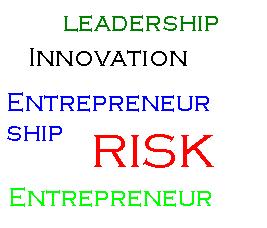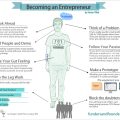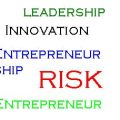Entrepreneur Definition – What Is Entrepreneurship?
The words entrepreneur and entrepreneurship have become really popular but also very few people know the exact definition and meaning of them. Often an entrepreneur is used instead of a businessman or a man/woman who starts a company and takes risks. But this is not correct! Nope… Let me try to throw some light on this popular word. In fact, the answer to the question “What is an entrepreneur?” seems to be not so trivial. But one thing is for sure, not every businessman is an entrepreneur. This is just like the apple – it’s a fruit but not all fruits are apples. To be an apple, you need some special qualities. Also, it looks like the meaning of entrepreneur has been evolving… So let’s go thoroughly through all of this and see what exactly it means.
The definition of the word entrepreneur
Going to the Oxford Dictionary we can see that an entrepreneur is defined as:
A person who organizes and operates a business or businesses, taking on greater than normal financial risks in order to do so.
And entrepreneurship is defined as:
The activity of setting up a business or businesses, taking on financial risks in the hope of profit.
However, I would bravely say that the definition of entrepreneur in The Oxford Dictionary is wrong or at least incomplete! Why? I am going to explain below…
These are not accurate definitions because that means that everyone who operates a business is an entrepreneur. As we said, this is not quite so. A true entrepreneur has to have some more additional qualities than just operating a business and taking risks. Qualities like leadership, charisma, and more. Peter Drucker (one of the fathers of entrepreneurship) even thinks that these people are more willing to avoid risks than willing to take risks (in his book ‘Innovation and Entrepreneurship‘). Read below for a further explanation.
What Is An Entrepreneur And Where Does The Word Come From
Richard Callington
The word “entrepreneur” was invented in France, in the early 18th century. It derives from the French “entreprendre”, which in simple English means “undertake”. The first man to use the term for economic purposes and actually build some theory around it was Richard Callington. According to him, an entrepreneur is someone, who practices business judgment in the face of uncertainty of the future. In this first definition, we can clearly recognize the word risk.
Jean-Baptiste Say
Later came the economist Jean-Baptiste Say, who formulated the definition this way: “one who undertakes an enterprise, especially a contractor, acting as an intermediate between capital and labor”. Say also said ( 🙂 ) that an entrepreneur is a guy, “who shifts economic resources out of lower and into higher productivity and greater yield”. That’s how the school of entrepreneurship was founded.
Joseph Schumpeter
The work of a scientist from Austria was the next big milestone in entrepreneurship as a science. His name was Joseph Schumpeter. He continued the work of his colleagues coming up with some new bright ideas. According to him, the entrepreneur is the ultimate innovator and earns his profits, however temporary, from successful innovations. He also detached the “risk” from the entrepreneur, assigning it to capitalists. This spurred a wave of critics from around the world, but this only helped future research.
Peter Drucker
The American professor Peter Drucker brought entrepreneurship to the next level. He developed further the ideas, describing the entrepreneurs as:
an innovator, who is willing to take a measured risk to start a new venture chasing greater than usual profit.
According to him, the basics of entrepreneurship are innovations. But he also put an emphasis on leadership. The successful entrepreneur must have very good leadership and management skills, which are essential for his/her success.
Having all the above in mind, I could say that an entrepreneur is a person, whose main virtue is innovation. This person is a visionary, a good leader, and a manager, willing to take risks above the average, usually, for a profit, his/her motives maybe not be solely financial. Entrepreneurs take risks, but only reasonable ones. That means not every business manager or owner is an entrepreneur. This title is deserved by only the people having the specified qualities from above.
What do you think about all of this? Please, share your thoughts in the comments below. And don’t forget to share this article if you think it’s interesting.







